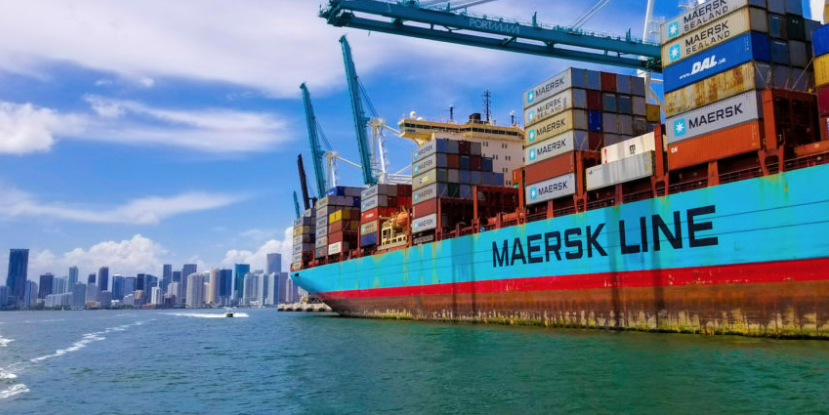CommentsLA WATCHDOG--On Friday, June 28, the Los Angeles City Council, as expected, voted to assert jurisdiction over a recent decision by the Board of Harbor Commissioners
that essentially permitted Maersk, the operator of a 484 acre terminal at the Port of Los Angeles, to make minor infrastructure improvements associated with its capital intensive plan to introduce 130 driverless electric cargo handlers that will increase the efficiency of its operations and, at the same time, significantly reduce the greenhouse emissions.
The City Council also vetoed the action of the Board of Harbor Commissions and remanded the matter back to the Board.
The City Council also directed the “Chief Legislative Analyst, with the assistance of the Mayor, to report on the establishment of a Blue Ribbon Commission that would study the issue of automation and future workforce development at the Port of Los Angeles and be tasked with providing recommendations to the Mayor, City Council and Board of Harbor Commissioners on the following:
- Investment in credible economic development strategies that would meet or exceed the number of jobs that are at risk from automation
- Ensuring the Port remains competitive and meets its target of zero emissions by 2035
- Protecting and expanding middle-class job opportunities for current and future generations
Underlying this action by the City Council is the objection by the politically powerful International Longshore and Warehouse Union to automation and the possible loss of 500 jobs with an annual total payroll of $50 million.
Unfortunately, there was not a discussion about the merits of the driverless electric cargo handler project, especially given the cut throat nature of the industry that has been plagued by overcapacity, low freight rates, and the need for greater efficiencies because our container charges are double those of competing ports.
Despite the Council’s veto, Maersk has indicated that it will proceed with the driverless electric cargo handler project without the minor infrastructure improvements (electric charging stations, the wi-fi antenna poles, and related equipment) because it is permissible under its lease with the Port and its labor agreement with the ILWU.
It is important that the Blue-Ribbon Commission be an independent, well financed body where the members have a working knowledge of the Port and the shipping and logistics industry, especially given the highly competitive nature of this capital-intensive business.
As a first step, the Commission must get an understanding of why the Port staff and its politically appointed Board approved this $1.5 million infrastructure project and how it relates to the capital-intensive plan to utilize driverless electric cargo handlers in the multi-billion-dollar Maersk terminal.
The Commission must also understand why efficiencies are important, especially as it relates to unloading and unloading of megaships that cost hundreds of million dollars, recognizing that they are not producing revenue while they are in port.
We all need to realize that this is a highly competitive business now that West Coast ports in Canada are pursuing the ports’ customers as our ports on the Gulf and East coasts now that the Panama Canal can accommodate megaships.
Importantly, the Commission needs to review the prospects of the two San Pedro ports and their impact on the Southern California economy, especially if we lose market share because we are a high cost, inefficient port.
While the ILWU is protesting the impact of technology and automation by holding a $1.5 million project hostage, the union has survived massive disruptions in the past. For example, the introduction of containers resulted in massive changes, but it also allowed the expansion of international trade whereby LA and Long Beach became the leading ports in the country. There have been other disruptions that have increased productivity in the ports, whether it be from lasers, GPS, or digitization of the supply chain. At the same time, employment at the Port is at record levels.
The key to the prosperity of the ILWU members, the shipping industry, the terminal operators, and the Southern California economy is to work together to maintain or grow market share. Otherwise, competitors will pick our pockets.
(Jack Humphreville writes LA Watchdog for CityWatch. He is the President of the DWP Advocacy Committee and is the Budget and DWP representative for the Greater Wilshire Neighborhood Council. He is a Neighborhood Council Budget Advocate. He can be reached at: [email protected].)
-cw
















